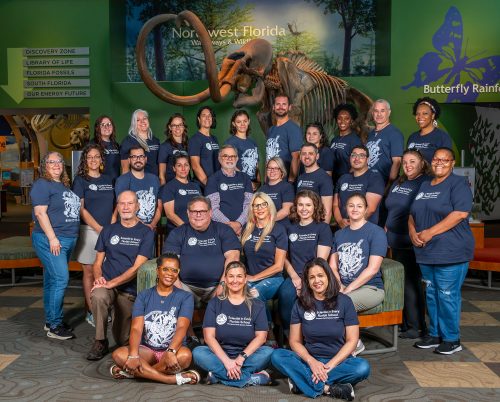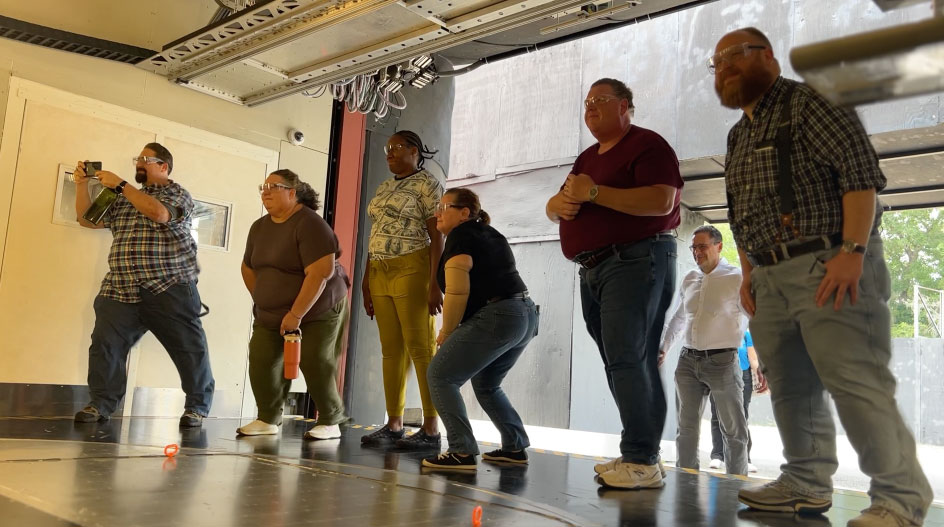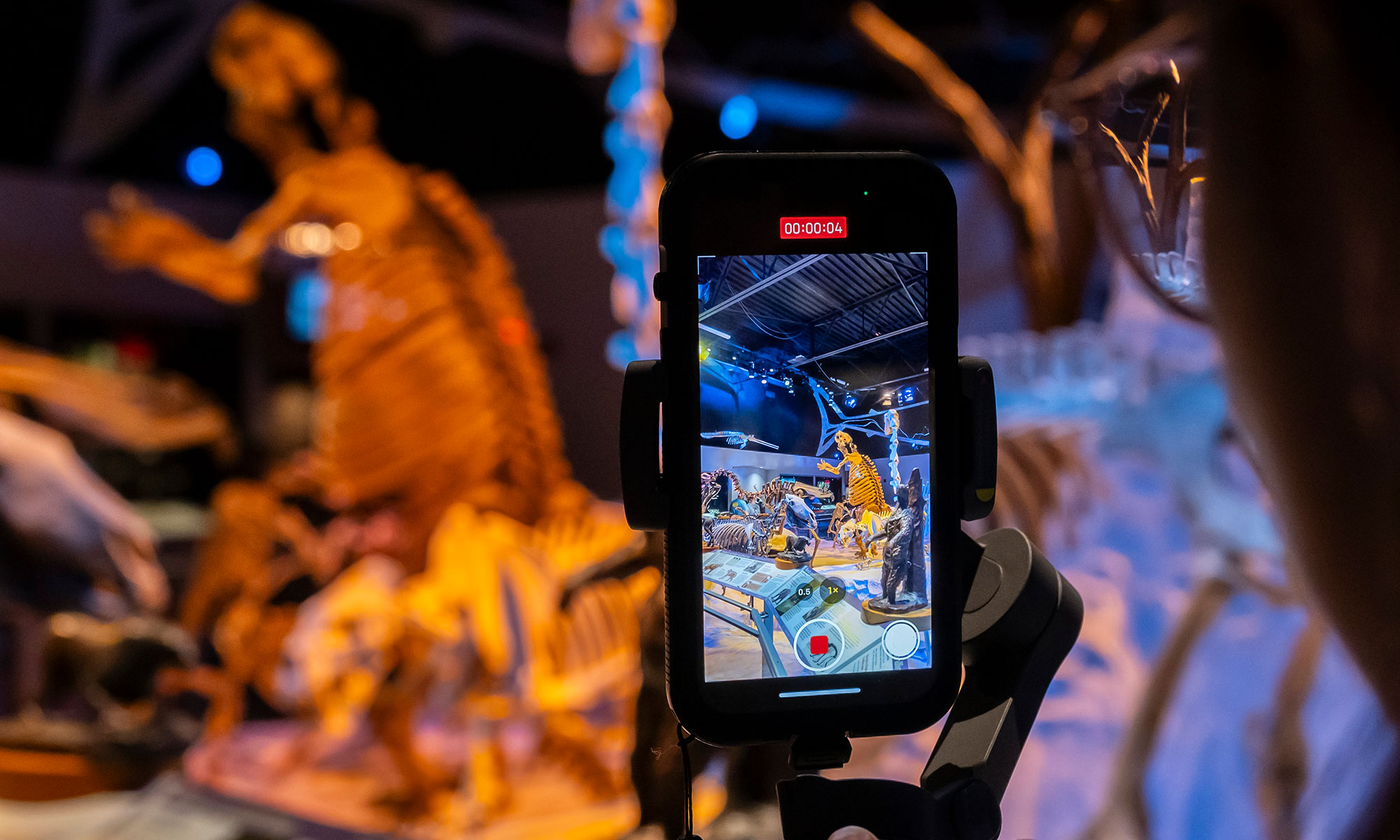Biting Into AI: Exploring Shark Teeth Through Machine Learning
To inspire more students to pursue STEM and computer science careers, a team from the University of Florida’s Thompson Earth Systems Institute (TESI), College of Education, and Herbert Wertheim College of Engineering has joined forces with the Calvert Marine Museum in Maryland. Backed by a three-year, $1.3 million grant from the National Science Foundation, this collaboration aims to equip Florida middle school teachers and students with the skills to use artificial intelligence (AI) to identify fossilized shark teeth.
Leveraging machine learning, the team developed a curriculum to help middle school teachers introduce students to artificial intelligence, with a focus on machine learning through the study of fossilized shark teeth.

Students begin by making scientific observations of different tooth characteristics, which they input into a computer algorithm. After training the system to recognize megalodon teeth, they apply the same process to identify teeth from other shark species commonly found along Florida’s beaches and riverbeds.
A key aspect of the project is its annual professional development workshops, where 76 middle school teachers collaborate with paleontologists, education researchers, and engineers to create standards-based lesson plans. Priority is given to educators from Title I schools to support low-income students with additional resources. The project also offers free access to customizable lesson plans and interactive machine learning models on its website, ensuring that any teacher can integrate these tools into their curriculum.
Co-principal investigator Jeremy Waisome, the Thomas O. Hunter Rising Star Assistant Professor in the UF Herbert Wertheim College of Engineering, guides students and teachers in developing and understanding machine learning models. Simultaneously, the team evaluates their perceptions of AI in science.
“This project helps us understand ways to integrate AI in science classrooms that are accessible, engaging and exciting,” Waisome said. “We believe this is foundational knowledge that can inspire students to consider careers in STEM.”
As the project concludes this year, it continues to advance the university’s mission to establish itself as a national leader in AI development and application.
Leaning into windy lessons at UF
When Zonnelle Hanley’s high school students returned to class last fall, they dove into hands-on, project-based lessons on how storms affect Florida’s northern coasts.
Thanks to the NHERI Teacher Training Institute at the University of Florida, Hanley’s students studied storm-related vulnerabilities and resilience on the Gulf coast and the Atlantic coast. They also engaged in research, build models, examine ecosystems and review Florida geography.
“Some of our students have not been out of Tallahassee,” Hanley told a group of her peers recently as she presented her lesson plan gleaned from a week of Natural Hazards Engineering Research Infrastructure (NHERI) teacher training at UF last summer.
Not only will Hanley and her students reap the rewards of these National Science Foundation-funded, UF-faculty-led workshops, she will have easy access to faculty and engineering students, as well as materials and other UF resources to significantly up her game in a STEM classroom.

Hanley was one of six Florida high school educators selected to study at UF last summer. After four days, they left with extensive project-based lesson plans on wind resistance, new ways to think about STEM teaching and memories of trying to stay upright in a wind tunnel.
The fourth year of the five-year NHERI workshops, part of the NHERI experimental facility award, the 2024 session wrapped up in June with presentations by the teachers demonstrating how, exactly, they will integrate those lessons–and UF resources—into their classrooms.
“The most valuable takeaway is that we are here to serve them and their students,” noted Waisome, who has overseen the NHERI Teacher Training Institute since it evolved from a $4.5 million NSF cooperative agreement with the Herbert Wertheim College of Engineering in 2021.
It is an important mission, the teachers contend, because not only do they provide vital skills, ideas and networking, the workshops also offer ways to inspire high school students about engineering and the different applications and career fields. The NHERI Teacher Training Institute works with underrepresented groups and Title I schools. Thus, inspiration is key, as many students do not know about careers in engineering, lack interest or simply think they are not smart enough for engineering.
“Some say, ‘Oh my gosh!’ This is part of a marine science career? That is possible?’” noted Maureen Shankman, a teacher at Santa Fe High School who participated in the institute.
“When the kids get to see what they can do with this, they get excited,” added Ken Jakoby, a teacher in Sarasota County.
The institute also provides student tours and hands-on projects for K-12 students in Florida.
“The Herbert Wertheim College of Engineering has always been a space where outreach is valued, especially across the state of Florida,” Waisome said. “As someone who was recruited to UF through these programs, it is truly a privilege to now facilitate them for our students and teachers.”
Teachers in the 2024 session said they loved the project-learning approach, as that is what works in their classrooms. Among the hands-on lessons: The teachers built and tested wind turbines.
They also spent much time in UF’s wind hazard experimental facility on East Campus in northeast Gainesville. The facility – where the teachers battled high wind gusts in the tunnel — is one of seven NHERI facilities in the United States that support research on tsunamis, earthquakes, hurricanes and tornados, along with structural-damage mitigation and societal impacts.
“This was not a sit and get,” Shankman said of the hands-on, wind-in-her-face UF session. “This was a sit and do.”

